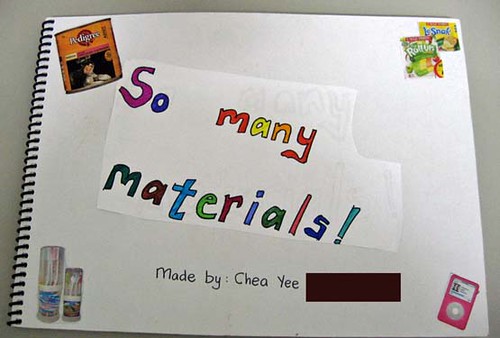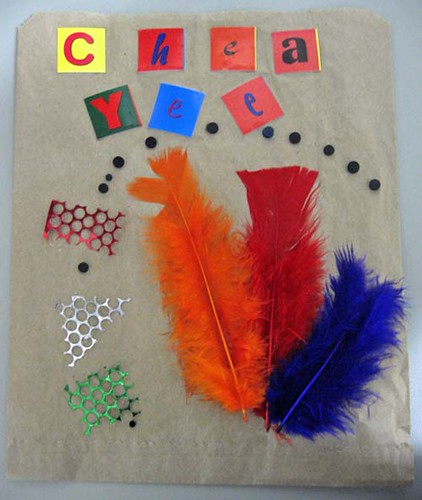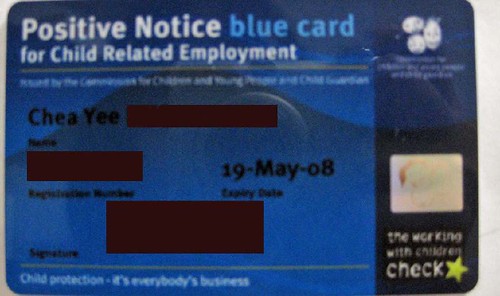This is a continuation from the entry here.
c) Transmission approach
The transmission approach to teaching science is the strategy of transmitting knowledge through use of teaching materials and demonstrations to an audience, and does not allow individual one-to-one attention between the teacher and learner.
This teaching strategy is the most widely used and especially in most traditional classroom contexts. However, the way it is used would depend hugely on the teacher’s understanding of this strategy to transmit knowledge to the classroom.
Among the advantages of using this strategy is that being the traditional form of teaching strategy and the one mostly used, the teacher is able to have a sense of control and use it in managing large group of learners in a classroom. Other advantages include that children would be able to be highly involved and focused during the learning.
The use of demonstrations of the teaching materials is an important instrument which could be utilized to initiate the children’s curiosity of scientific ideas. This, the teacher could use as a “stepping stone”, taking opportunities of “teachable moments” when it happens to cross over into discovery learning. It also raises queries, focusing the children’s curiosity about a unit to be studied, clarifying confusion and tie loose ends. (Abruscato, 1992)
The challenge is for the teacher to be able to select & modify the learning content that its content is both age and language appropriate, assuming a continuity to bridge the learner's prior knowledge. (Fleer & Hardy, p.78- 79).
The disadvantages to this learning strategy is that it places a heavy emphasis on scientific knowledge to be learnt (Fleer & Hardy, 1996), being a teacher- initiated and not learner-centred environment. It also does not allow students to have a say in what they want to learn in science curriculum (Fleer & Hardy, 1996)
As Fleer & Hardy states (1996, p.80) states, the probability of the teacher in failing to motivate children as well as authenticity of student’s participation is high, and that there is only a superficial understanding of science concept as an idea.
How it may improve my teaching?
As teaching professional, the knowledge would assist me in the management of the classroom, through strategies such as providing children with basic grounded concepts and ideas before allowing them to undergo any tasks or science investigations, in order that students are able to ‘make meaning” of the lesson. (Fleer & Hardy, 1996)
Other strategies include that to be an effective teacher, one should make good sense to learn about the student’s prior knowledge in an attempt to link it to the activity that the teacher would teach. (Fleer & Hardy, 1996).
d) Interactive aka. Conceptual Change Teaching Approach
This approach as a teaching strategy is a culmination of the of each of the other three teaching strategies, and consists of five main components: preparation, exploratory activities, children’s questions, children’s investigations, reflection (Biddulph & Obsborne, as cited in Bell, p. 94) The teacher using this strategy has four main teaching roles, namely being the stimulator of curiosity, challenger of ideas, resource person, as well as senior investigator (Biddulph, as cited in Bell, p. 99).
This teaching strategy places heavy emphasis on the importance of both science concepts & the processes of science, with a teaching focus on achieving change in the strategies children use to make meaning of their world. It assumes the importance that children have knowledge of their own understanding and learning processes, and they should be taught to do so.(Fleer & Hardy, p. 112-113)It is about achieving conceptual change in children It emphasizes the importance of exploring children's initial understandings, encouraging a high level of responsibility in pupils for self directed learning, and assistance is doing so. It must be carefully introduced so that the student-teacher can develop and consolidate both skills and understanding about the processes involved. (Fleer & Hardy, p.118).
The advantages to this approach is that it builds in processes that focus on conceptual change in children, lending itself to a vast range of topics, which must be linked to children’s experiences and interests. (Appleton, 1993, p. 199)
Other advantages include that this strategy is able to stimulate children’s interest in science concepts and intellectual and investigation skills would have developed in the course of investigating topics (Biddulph & Obsborne, as cited in Bell, p. 94)
The disadvantages to it is that it may be too ritualistic as a teaching-learning strategy and may create problems in covering a curriculum (Appleton, p. 199). Teachers may have trouble getting adequate relevant resources for all subject areas, and may feel pressured to conform to traditional practices when evaluating (Biddulph , as cited in Bell, p. 96)
Reflect- on impact on the way I have been taught before? I come from a cultural background whereby the context relies heavily, and emphasizes the utilization of the transmission approach as a strategy to transmit information and knowledge to learners. Knowledge is merely an abstract concept, and teachers do not have the time to be able to cater to the sheer amount of students who may not understand the concepts. Students are not expected, nor wanted to question the scientific concepts posed, but just merely memorize by rote, and regurgitate it out during examinations. As such, critical thinking skills and processes are not able to be developed nor flourish under such repressed environments.
Discovery learning is not an approach emphasized even at preschool level as the children are expected to learn and know three languages, and not just merely one! This does not give the leeway or the time needed by the children, as teachers need to cover the curriculum areas, and children need such time to be able do develop their observation and concentration skills. Yet again, many administrators have to give way and conform to the expectations of society in order for their institutions to survive financially. Peer based learning, or co-operative learning groups are unable to flourish under such environments, as the children concentrate more on memorization rather than social development skills.
An interest in professional teaching institutions is growing, and tertiary institutions are beginning to be established. However, it would take the span of ten years and more, before there would be adequate supply of trained teachers to be able to change the trend in teaching here, as in context, the culture and political situation does not provide for such flourishing situations yet.
Outline my personal approach, how it had been developed
An understanding of what, how and when a teaching professional would like to teach is influenced by the their understanding of theory and philosophy in Early Childhood
Other factors such as the underlying theories and philosophy behind Early Childhood curriculum decisions and the teacher’s own personal experience will affect what the teacher is and is not able to bring into the classroom.
The context where I come from, mostly only provides for merely the use of transmission approach, and textbook learning. However, after undergoing training in Montessori methodology, it has changed my view on the learning approach. The Montessori approach emphasizes much on hands-on learning, through using of the 5 senses, hands and mind.
It also emphasizes skills in most of the approaches as written above, which is discovery learning, which emphasizes exploration of materials, peer and multi-age learning. The Montessori methodology also places much importance in the child on the development of the scientific processes, and to a degree the utilization of transmission learning by the teacher.
This knowledge has allowed me to develop my own personal outlook of teaching, whereby I now view that the teaching of young children is not limited to the textbook, nor by the book, but it is through planning and providing the children with purposeful and meaningful activities. These activities which caters to their interests, as well as careful observation from the teacher and allowing them the opportunity and the freedom to communicate and interact with each other which could contribute more to their learning than the teacher could ever transmit.
It is important that as an early childhood professional who is working with children in pre-operational and concrete operational stages of cognitive development, that I carefully assess and observe their cognitive development as it will “bear much fruit” (Gega, 1994) and be satisfying for a teacher to see how much the child has developed in that span of time due to their dedication and love for the child.
However, the utilization of my skills would be very much dependent on the preschool’s ethos and the kind of learning content it places emphasis on.
The context from which I come from, is mostly a teacher initiated and teacher controlled classroom environment, and pays much emphasis on transmission learning, with a significant amount of knowledge and expectancy that the children should learn and remember (Fleer & Hardy, 1996) . As such, I find it difficult to be able to even use the skills and knowledge in such an environment, as the staff and other teaching professionals may not understand, and this may cause much pressure in the environment.
The understanding of the different strategies, and the experiences and outlook of the other teaching professionals throughout my readings, has enabled me to broaden my view that it is much more dependent on the teacher’s attitude and mindset, and willingness to learn with the children, which could propel the process and is an important factor and motivation for the teacher in preparing to plan and teach the concepts to a classroom full of children.
Conclusion:
This paper has attempted to examine the different learning strategies based on constructivism that teaching professionals are able to utilize in their teaching of science in the classroom.
The different context which places emphasis on the kind of learning content and processes will influence the kinds of learning outcome in the educational institution. Regardless of whether in elementary, or in a higher learning institution, these are the factors that will influence the manner which teaching professionals are able to teach. The quality of professional training and the teacher’s background theory knowledge of the different strategies will also influence their classroom management skills and how they are able to purposefully transmit the content of their curriculum in a creative yet learner centered manner.
Developing a purposeful and creative science teaching curriculum with the right attitude in mind is important, and as Gega states (1994, p. 19) it develops in children the kinds of attitudes, ways of thinking, and a solid knowledge base that promote success in the real world.
Reference:
Abruscato, J (1992) “Discovery learning: teaching strategies, textbooks, and management techniques. Integrating science with other subjects’, Teaching children science, 3rd edn, Allyn & Bacon, USA, pp.72-109
Appleton, K (1993) “Using theory to guide practice: teaching science from a constructive perspective’, School science and Mathematics, vol. 93, no. 5, pp.269-74.
Bell, Beverley (1995) Children’s Science, Constructivism and Learning in Science, Deakin University: Australia.
Fleer, M & Hardy, T (1996), Science for children: developing a personal approach to teaching, Prentice Hall, Sydney, pp.71-83.
Gega, Peter.C (1994) Science in Elementary Education: 7th Edition, Macmillan Publishing Company: USA.
Martin.D (2001) Constructing early childhood science. Delmar Thomson Learning
Australia.
Harlan, JD, & Rivkin, MS (1996), “Guiding discovery science’, Science experiences for the early childhood years: an integrated approach, 6th edn, Prentice Hall Inc, Ohio, pp.27-44.
SAPA, Science- A Process Approach, as viewed on 23rd May 2006 http://www.coe.ufl.edu/esh/Projects/sapa.htm


